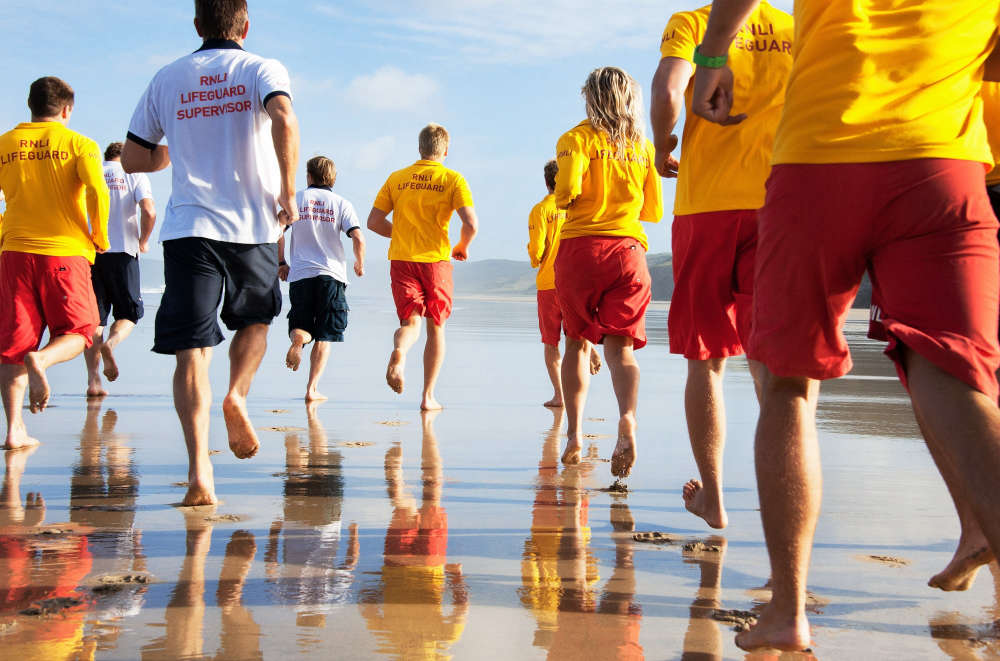
Soaring temperatures will inevitably mean more people visiting the coast, but the RNLI is warning people to be aware of the dangers and to know what to do should they find themselves in difficulty in water.
-
With yellow heat health alerts coming into effect for much of the UK today (Wednesday 18 June), the Royal National Lifeboat Institution (RNLI) is warning of the dangers at the coast.
-
The charity is urging people to remember a single piece of advice – Float to Live –which could help save their life if they are struggling in the water.
Ross Macleod, Water Safety Manager from the RNLI, says:
‘Heading to the coast in hot weather is a great way to have fun, relax and cool off – but the water can be dangerous. Air temperatures may feel warm, but UK sea temperatures are cold enough year-round to trigger cold-water shock, while big waves and strong rip currents can over-power even the most confident water users.
‘The single piece of advice we’re urging people to remember is Float to Live: Tilt your head back, with your ears submerged. Relax and try to breathe normally. Move your hands and legs to help you stay afloat if you need to. It’s fine if your legs sink – we all float differently. By doing this, you give yourself the chance to rest and recover your breathing. Once you’ve regained control of your breathing, you can call for help or swim to safety.
‘We know this advice saves lives. To date, we’re aware of around 50 people who have used the Float to Live advice to help themselves survive when in danger in the water – and these are just the cases we’re aware of. There may be many more. We’re calling on people to remember the advice, practice it and share it.’
The charity’s advice for anyone struggling in the water is ‘Float to Live’:
-
Tilt your head back, with your ears submerged
-
Relax and try to breathe normally
-
Move your hands and feet to help you stay afloat
-
It’s fine if your legs sink, we all float differently
-
Practise floating in a local pool if you can.
If you see someone else struggling in water:
-
Call 999 or 112 and ask for the Coastguard.
-
Tell the person to relax and float on their back.
-
Throw something buoyant to help them stay afloat.
For more information visit RNLI.org/Float.

 Hospiscare needs your help with a unique ‘double your money’ fundraising challenge
Hospiscare needs your help with a unique ‘double your money’ fundraising challenge
 County Council invites residents to help shape 2026/27 budget
County Council invites residents to help shape 2026/27 budget
 ‘Pop-up’ vaccination clinics being held in several communities this week
‘Pop-up’ vaccination clinics being held in several communities this week
 Rural areas to be hit hardest by Lloyds’ removal of cheque deposit facilities at Post Offices
Rural areas to be hit hardest by Lloyds’ removal of cheque deposit facilities at Post Offices











